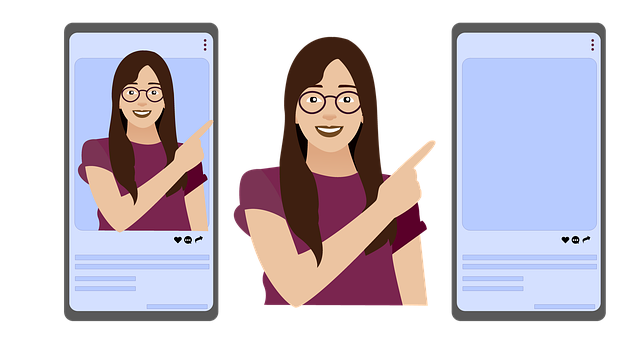Los Angeles has strict "Spam Call" laws, with California Assembly Bill 375 and the Comprehensive Data Security Law (CDSL) regulating unsolicited text messages. Businesses must obtain explicit consent for marketing automation to avoid fines and legal action from spam call law firms in LA. These laws empower consumers to opt-out of unwanted calls and take legal recourse against violators, while ensuring businesses' marketing efforts comply with CCPA and FCC guidelines. Strict enforcement by authorities and law firms deter intrusive practices, fostering a respectful communication environment in Los Angeles.
“Los Angeles has implemented stringent anti-spam text message legal policies to protect consumers from unwanted and harassing calls. This comprehensive guide delves into California’s definition of spam, the rights and responsibilities of businesses and consumers alike, and the penalties for violations.
We explore practical strategies for compliance, offering essential insights for Los Angeles businesses to navigate and adhere to these laws. For expert advice on Spam Call law firm Los Angeles, look no further.”
Understanding Los Angeles' Anti-Spam Text Message Laws
Los Angeles has strict regulations in place to combat spam text messages, aiming to protect its residents from unsolicited and potentially harmful communication. These laws, often referred to as the Spam Call laws, are designed to ensure consumers’ privacy and peace of mind. The California Assembly Bill 375, enacted in 2018, strengthened existing regulations by requiring businesses and individuals to obtain explicit consent before sending automated text messages for marketing purposes.
Any violation of these anti-spam text message policies can result in significant fines. Los Angeles residents have the right to report spam calls, and doing so is encouraged to help enforce these laws. A spam call law firm in Los Angeles can provide guidance on navigating these regulations, ensuring compliance, and understanding the rights of both businesses and consumers under this legislation.
The Legal Definition of Spam Calls in California
In California, the definition of a spam call is broadly interpreted under the state’s Comprehensive Data Security Law (CDSL). Any telephone call made with the use of an automatic dialing system or prerecorded message to a wireless telephone number without the prior express consent of the caller is considered a spam call. This law firm in Los Angeles specializing in spam call laws plays a crucial role in helping residents navigate this complex area.
The CDSL grants consumers the right to sue for damages and injunctive relief if they receive such unwanted calls. A “spam call” includes not only marketing messages but also those from debt collectors, telemarketers, and political organizations. This broad definition aims to protect consumers from intrusive and nuisance calls, ensuring their peace of mind and privacy.
Rights and Responsibilities of Businesses and Consumers
In the dynamic digital landscape of Los Angeles, businesses and consumers alike face unique challenges regarding spam text messages. The city’s robust legal framework aims to protect both parties by delineating clear rights and responsibilities. A spam call law firm in Los Angeles plays a crucial role in navigating these complexities, ensuring compliance with local regulations.
Businesses have the right to market their products or services via text messages but must obtain explicit consent from recipients before sending any promotional content. This consent should be voluntary and unambiguous. Consumers, on the other hand, are protected from unsolicited mass text messages that promote goods or services. They can opt-out of receiving such messages easily and have legal recourse against companies that violate their privacy.
Enforcement and Penalties for Violations
In Los Angeles, the enforcement of anti-spam text message laws is taken seriously by both legal authorities and reputable call law firms. Any violations can result in significant penalties, including substantial fines and other legal repercussions. The California Public Utilities Commission (CPUC) plays a pivotal role in monitoring and investigating complaints related to unwanted text messages, often referred to as “spam.” They have strict guidelines and regulations in place to protect consumers from these intrusive practices.
If a spam call law firm in Los Angeles is found to be sending unsolicited texts or failing to comply with opt-out requests, they can face legal action. Consumers who receive such messages can report them to the CPUC, which may lead to an investigation and potential fines for the offending company. These penalties serve as a deterrent and help maintain a more harmonious and respectful communication environment in the city.
Strategies for Compliance: What Los Angeles Businesses Should Do
Los Angeles businesses must stay informed and proactive regarding the city’s stringent spam call laws to avoid legal repercussions. One effective strategy is to implement robust anti-spam measures, including filtering technologies and automated opt-out mechanisms, to ensure compliance with the California Consumer Privacy Act (CCPA) and Federal Communications Commission (FCC) guidelines. Regular staff training on these policies can help identify and prevent potential violations.
Additionally, businesses should foster transparent relationships with customers by obtaining explicit consent for marketing calls and texts. Keeping detailed records of customer preferences and opt-out choices is crucial. Engaging the services of a reputable Los Angeles spam call law firm can provide valuable guidance tailored to local regulations, helping businesses navigate this complex legal landscape successfully.






